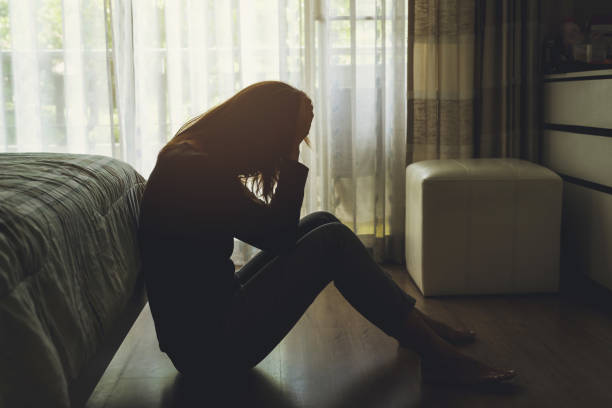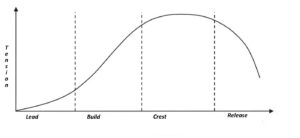Despair sucks. Hard. Sadly, suicide is one answer to what to do when you just can’t deal with sadness anymore. In fact, so many middle-aged white males in the United States are taking their own lives that sociologists now have a term for it: “suicides of despair.”
I’m a middle-aged white American male, and I’m suicidally ideated.
For me, that means I make a regular, conscious choice to keep breathing. I want to be alive. The world needs people who are unafraid to talk about suicide in a non-judgmental, non-threatening way. That’s an example of one of the ways that I use the energy in overwhelming sadness to fuel my work.
Being very sad is not a mental illness. Losing all hope is not a mental health problem. In life, sadness and hopelessness happen. Sometimes they actually are insurmountable. Sometimes they just seem insurmountable. Trouble is, there’s no way to know which is which.
“Don’t Give Up Before the Miracle Happens”
This famous quote from Fannie Flagg has become a kind of touchstone for some of the recovery groups where I volunteer. (Remember the movie “Fried Green Tomatoes?” Flagg wrote that.) It’s not bad advice, but, given at the wrong time, it can be terrible advice to receive. Magical thinking? Come ON! No miracle is going to fix THIS!
I’d bet money most human beings have been there…with the possible exception of the Dali Llama. If I ever get to meet him, I’ll ask. To be so deep inside sadness that no miracle can reach us…isn’t that part of the richness of being alive?
Look, I’m not trying to say that it’s fun or feels good to be that sad. And I’m not trying to be glib about it. Utter sadness is…impossible.
People you might recognize have gone public about that kind of sadness. Elie Wiesel and Viktor Frankel had the courage to publish books about surviving incarceration in the Nazi death camps. Here is a list of twelve more people who thrived in spite of what the world likes to call “mental health” issues, and yet made significant contributions to society.
It’s trendy these days to offer a kind of hero worship to survivors of great trauma, whether physical, mental, or emotional. They earned our respect, right? We also like to idolize those who chose to end their own lives, which is a bit sick and twisted, but there’s something helpful and inspirational about both the living icons of hardship and the martyrs to it.
Simply as a thought experiment, would you give yourself a moment to consider with me how extreme sadness could be a useful thing?
An Alternative Ending
If the heroine dies at the end of the movie, don’t you wonder what might have happened if she’d lived? If the hero survives the final battle that almost killed him, do you wonder how things might have gone if he’d died?
It happens both ways in real life, too. I wonder how my best friend would be doing today if he hadn’t killed himself years ago. At the times in my life when I felt like I needed to end it all, I also wondered how it would go…either way. Clearly, I’m still alive, so I can answer exactly half of that question.
There’s a lot of power in despair. As a teenager, I once handed in a high school writing assignment: a poem titled “Despair.” You know: “then the end is near,” and “I am waiting,” and other whiny Pablum like that. So maudlin! Makes my skin crawl to think about it now. The poem got an “A” and I felt proud but wondered how such a tragic emotion could raise so little concern about my feelings lurking behind it. Not long after that, I left the poem with its bright red “A” on my Mom’s desk, and “borrowed” the car for the day. What a day that must have been for my parents! I was safe, of course, but full of adolescent angst.
What I want to encourage you to do – what I have learned to do – is to take the power that’s in the sadness and despair and use it. This is the experiment. Use that energy to write an alternative ending to any situation you’re in that seems hopeless. Make it as wild as you like. Write more than one. (Yes: it works better if you actually write them down!)

I know. Just do it. This is only an experiment. You can stop any time and let real life take over again, but for now, go along with the process. If you’re angry now that you know you need to find something to write with and something to write on, good. Add that anger energy to the sadness and despair energy and you’ll be writing for a while.
Psych Out
The point here is not to get snarled in the weeds. If one alternative ending leads to suicide, let yourself write that. If it leads in another direction, let yourself write that, too. Do this without judgment. Just allow yourself to write your imaginative way beyond the sadness and despair that grips you. Write at least two alternative endings.
This is not about psyching yourself into following one alternative ending or another. The point of this thought experiment is only to connect you safely to the energy that’s in strong emotion and help you find an innovative approach to what to do when you just can’t deal with sadness anymore.
You may find that you have energy enough to write more than two conclusions. If so, do that. The exercise ends when you run out of ideas for alternative endings and stop writing.
Take Stock
Was that hard? Easy? How do you feel now? Notice these kinds of things, please. Your feelings, your responses, your reactions. Again, do this without judgment. Does sadness still have the same chokehold on you as before the exercise? If it does, you will want to re-visit this thought experiment and mine its energy reserves to find additional alternative endings.
This notion of using the energy we don’t like to accomplish something isn’t new. LinkedIn recently served up an article by Art Markman about how to take advantage of the energy in guilt. Leading-edge thinkers are catching on, setting themselves up for success, and offering their wisdom to us. It’s ancient wisdom, really, and we would all do well to pay attention, off-gas some of the sadness (or fear, or anger, or whatever), and gain a new competitive edge at the same time.
If you find that you can leverage complete despair into something wonderful, that’s the miracle at work. However, for most of us, it takes practice to get that kind of leverage. You can use the thought experiment in this article to tap unused energy any time, but there are many more ways to do that, too.
(Here at Practical heart Skills you can find experts at connecting you to the productive power of your emotions – especially the ones we don’t like. We teach individuals, teams, and enterprises practical ways to do that. Contact us here for more. End of pitch.)
When You Just Can’t Deal….
I know what it feels like when I just can’t deal. It happens to me a lot. I’m starting to believe that it’s supposed to. At those times, I practice. What do I practice? Something that helps use up the energy. Alternative endings, for example, or intentional listening (allowing music to help me process the energy completely).
The point here is that, when you just can’t deal, you have reached a moment of clarity. It’s a call to action. It could feel like a battle cry or just a cry, but, at that moment, you have knowledge without a doubt. If it feels like a life or death situation, you’re doing it right.
 Not many of us are blessed with that kind of clarity. Thank yourself for being so clear.
Not many of us are blessed with that kind of clarity. Thank yourself for being so clear.
Choose to play with that sad, sad energy, in safety, without breaking things and hurting people, please. Get familiar with how it works, since what we know well no longer frightens us. Take some time to let that ultra-sad energy play around with your system, too. See what it offers you. Let yourself cry, or rage, or write, or listen to your favorite sad songs. If exercise is what helps, get physical. Make that energy work for you. Don’t let go of it until it has revealed its gift.
Don’t you want to know how this part of your story turns out?
You can do this.
It’s Better Together
No need to go it alone. If you would like to walk alongside us in your process, please reach out here.
Still difficult when you wonder
What To Do When You Just Can’t Deal With Sadness?
Try “How To Deal With Sadness and Depression Without Taking a Prescription” to jump-start your process.
Ready for a deeper dive? The Musimorphic Quest, a fully-mentored online active-learning experience will immerse you in practical ways to meet life’s challenges with skills you may not realize you already have. It’s not for everybody, but you are that unique individual who really resonates with with the power of music and wants to learn to wield it with skill, give it a try. The landing page is here.



